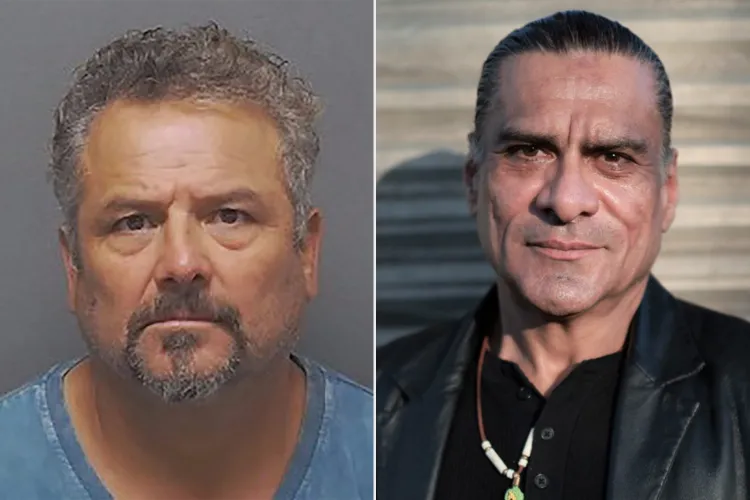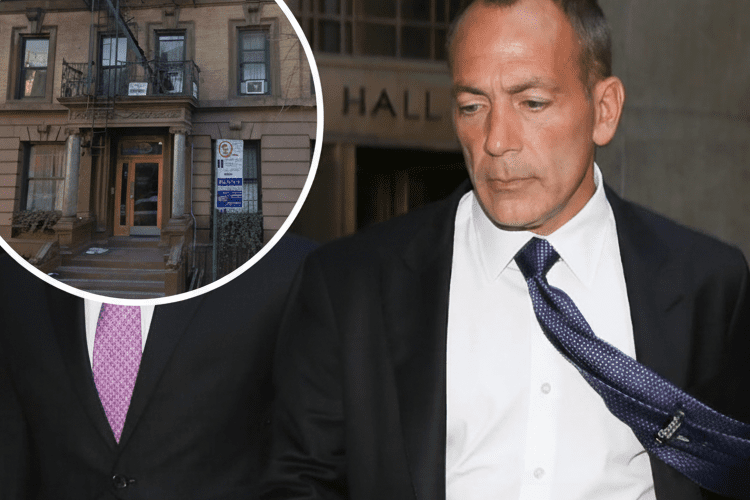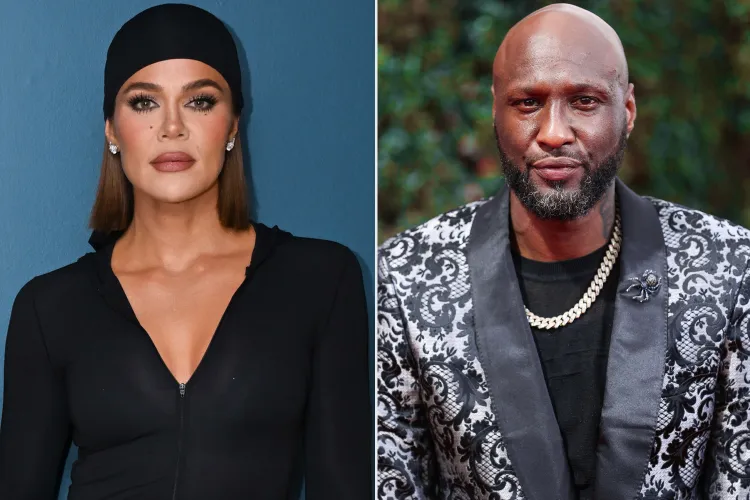“King of the Hill” Actor Jonathan Joss’ Neighbor Indicted for His Shocking Murder — New Details Paint a Disturbing Picture of the Tragedy That Stunned Fans
Jonathan Joss, the actor whose resonant voice gave life to John Redcorn on “King of the Hill” and whose performances across film, television, and stage garnered deep admiration, is at the center of a case that has left fans heartbroken and a community shaken. Weeks after his unexpected death, authorities say the man accused of fatally shooting the actor — his own neighbor, Sigfredo Ceja Alvarez — has now been indicted for murder. Court documents, interviews, and law-enforcement statements are helping piece together a tragedy involving two men whose lives intersected in what police describe as a fatal act of violence.
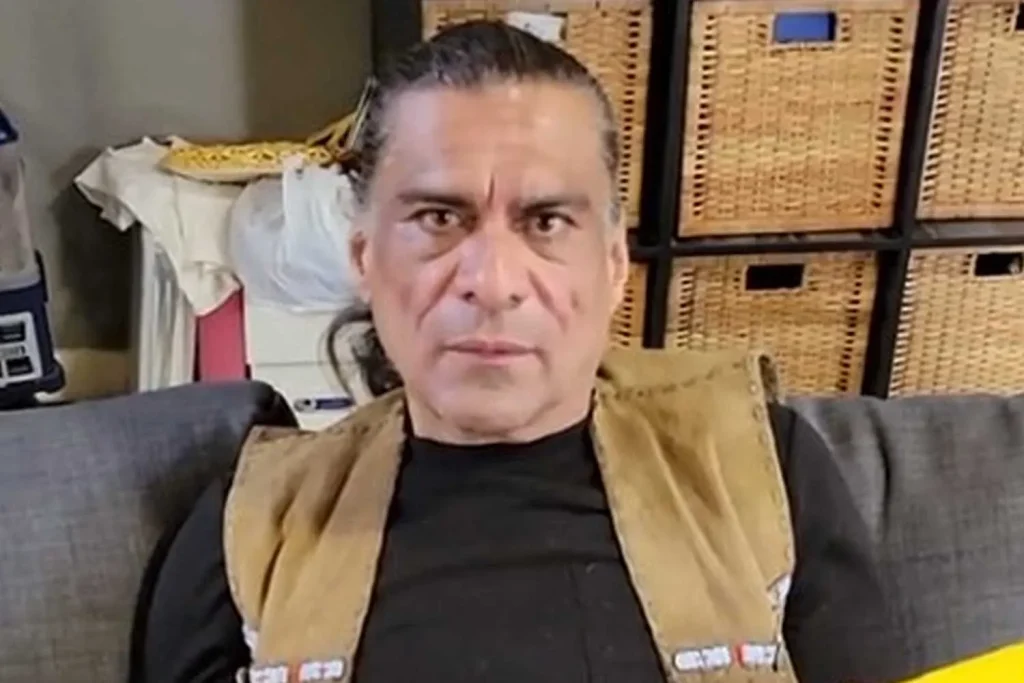
Joss, 58, was widely recognized for portraying characters with emotional weight, cultural pride, and quiet strength. His performance as John Redcorn on the long-running animated series made him a familiar voice to millions, but his contributions went beyond animation. He appeared in major projects like “Parks and Recreation,” “The Magnificent Seven,” “Doc McStuffins,” and a number of independent films that spotlighted Indigenous storylines and creators. His colleagues often described him as warm, grounded, and passionate about uplifting Native voices in Hollywood. So when news broke earlier this month that Joss had died following a shooting near his home in Bexar County, Texas, followers expressed shock, and close friends struggled to understand how such a senseless tragedy could unfold so close to where he lived.
According to Bexar County Sheriff’s Office statements reviewed by PEOPLE, deputies responded to reports of a shooting on Nov. 3 in the San Antonio area. Emergency responders arrived to find Joss seriously injured. Despite lifesaving efforts, he died at the scene. Investigators quickly turned their attention to a neighbor, later identified as 57-year-old Sigfredo Ceja Alvarez. Court records indicate the two men had known each other for some time, though authorities have not publicly detailed the nature of their relationship or whether any disputes preceded the shooting. What investigators have confirmed is that evidence led them to believe Alvarez was responsible, and he was subsequently taken into custody.
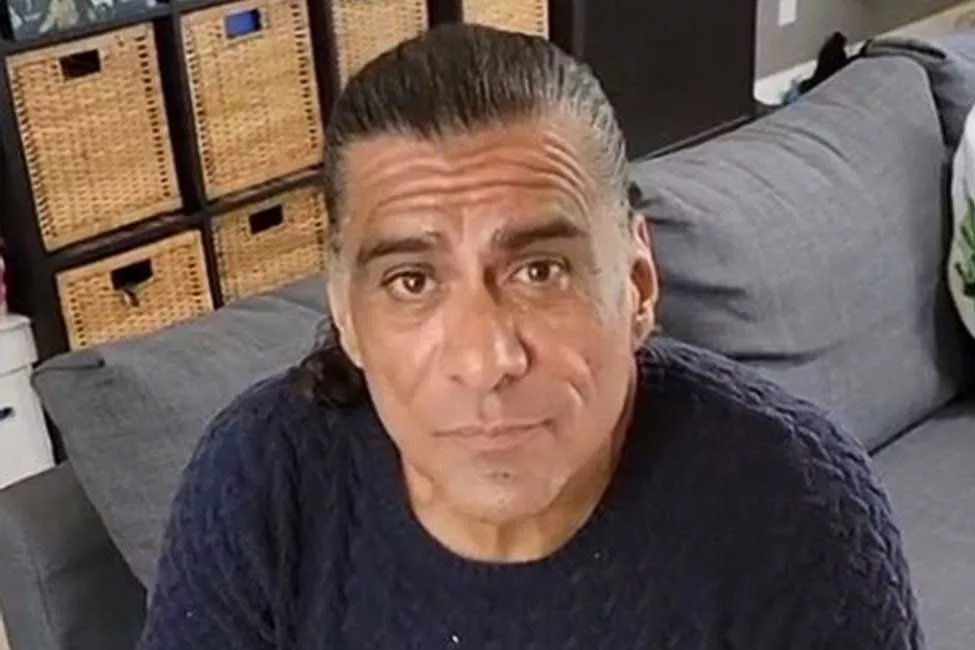
The case moved another step forward on Nov. 17, when a grand jury indicted Alvarez on one count of murder. Under Texas law, an indictment signals the grand jury’s belief that there is sufficient evidence for the case to proceed toward trial. With the indictment now in place, prosecutors will continue assembling witness statements, forensic findings, and investigative materials that outline what they believe happened on the night Joss died. Meanwhile, Alvarez remains in custody. His booking photo, released by authorities, shows him with a stern look and gray hair peppered with stress — an image that now sits beside portraits of Joss shared by fans online, creating a jarring contrast between the man celebrated for years on television and the man accused of ending his life.
As the legal process moves forward, the emotional weight of the case is being felt deeply by Joss’ circle — friends, colleagues, and longtime fans who grew up with his work. Some members of the entertainment industry have taken to social media to share childhood memories of hearing his voice on “King of the Hill,” while others recalled working alongside him on independent sets where his sense of humor was matched by a seriousness about his craft. Those close to him say he remained active in creative communities, mentoring younger actors and lending his voice to projects that highlighted Indigenous stories. His sudden death has left many with a sense of something deeply unfair — not only because of how he died, but because of how much more he had hoped to do.

Law-enforcement officials have not released a detailed narrative of the shooting, citing the ongoing investigation, but they have emphasized that the focus now is ensuring justice is handled appropriately. Detectives have been speaking with neighbors, combing through physical evidence, and preparing to present a full timeline in court. While investigators have declined to comment on whether a confrontation occurred immediately before the shooting, or whether any weapons were recovered besides the one believed to have been used, they have urged patience from the public. Cases involving neighbors can be emotionally loaded, particularly when disparities arise between how the parties were perceived during daily interactions and what police allege took place in a moment of violence.
For many who lived near Joss, the news came as a shock. Local residents told reporters that the actor mostly kept to himself but was always polite, greeting neighbors with a nod or a friendly wave. Several recalled mild interactions with Alvarez as well, describing him as a quiet man who occasionally chatted with people in passing but kept a relatively low profile. Nothing in the neighborhood’s day-to-day routine, residents say, pointed to the possibility that such a violent incident could erupt. That sense of disbelief continues to ripple outward as the community processes the loss, with some placing memorial flowers near Joss’ home and others leaving handwritten notes thanking him for his representation of Indigenous characters on screen.
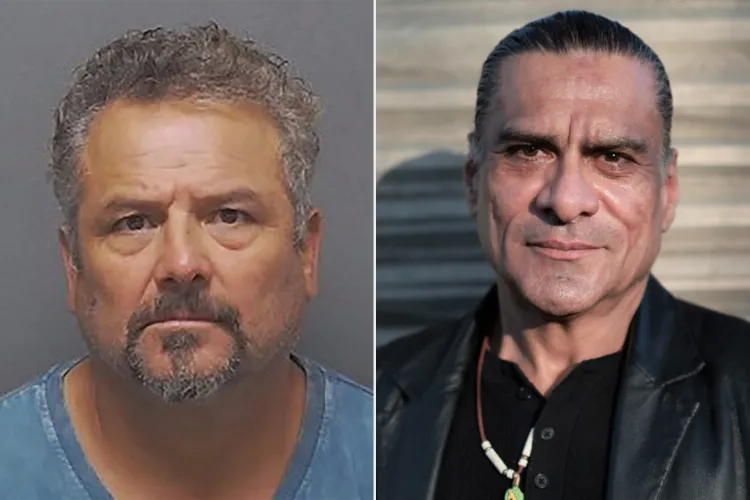
The loss also hits deeply within the Native acting community. Though Joss played roles across genres, he was widely recognized as an advocate for Indigenous representation in film and television. His portrayal of John Redcorn became emblematic to many fans not merely because of its humor, but because he brought a sense of authenticity and dignity to a character who could have been flattened into a stereotype. Fellow Indigenous actors have spoken in interviews about how he encouraged them to pursue opportunities despite the industry’s long history of underrepresentation. Several have publicly honored him since his death, calling him a mentor, a steady presence, and someone who knew how to make people feel seen.
Family members have not made extensive public statements since the indictment, but they previously expressed gratitude for the outpouring of support. Loved ones say they are focused on honoring Joss’ life, which they describe as deeply rooted in community, creativity, and cultural pride. They have asked for privacy as the case moves forward, acknowledging the emotional toll that comes with not only losing a family member but facing the reality that someone who lived steps away stands accused of causing that loss. Supporters have created online tributes, sharing clips from Joss’ on-screen work and highlighting lesser-known interviews in which he spoke about heritage, storytelling, and the importance of Indigenous voices in entertainment.
For the prosecutors handling the case, the path ahead will involve presenting evidence that establishes what transpired and why the state believes the charge of murder is appropriate. For Alvarez and his defense team, the focus will shift to navigating the court system, reviewing forensic reports, and preparing their response to the allegations. Because indictments do not reveal detailed evidence, much of what the public will learn will emerge gradually in hearings and filings. Until then, speculation remains limited by design — a safeguard to preserve fairness and accuracy as the judicial process unfolds.
But even without the full picture, the emotional reality is clear: an artist whose voice and presence brought meaning to many lives is gone, and the circumstances of his death have left a deep ache in the hearts of those who admired him. Whether through animation, live-action roles, or his influence on Indigenous representation, Jonathan Joss carved out a space in the cultural landscape that fans say will not fade. His death marks a painful chapter, but the love, respect, and recognition flowing in since the tragedy reflect the mark he left behind.
As the investigation continues and the case moves toward its next phase, the focus remains on truth, accountability, and honoring the life of a man whose work touched millions. For now, supporters hold on to the legacy he leaves — one built on humor, honesty, passion, and the profound belief that stories can bring people together. In the weeks and months ahead, that legacy is likely to grow even stronger as more people revisit his performances and reflect on the lasting impact of a career cut far too short.
